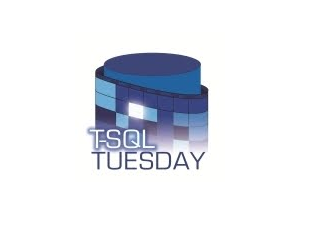
For this month’s T-SQL Tuesday, Andy Leonard (b|t) asks How Do You Respond When Technology Changes Under You?
It’s a great topic and inspired me to write a T-SQL Tuesday post this month. I’ve missed the last couple due to a combination of just not feeling like it, and the previous topics weren’t best suited to me. Hopefully this can inspire me to get writing again.
Hey, I thought I was the SQL DBA!
When I got my start with SQL Server, I was just that – A SQL DBA. I worked as a junior member of a big team, we had a large SQL Server estate and I just wanted to learn to become as experienced as the senior folk. I was able to learn and be mentored and was enjoying making progress. Then I heard we were going to start using “The Cloud”. Not only that but I was going to be responsible for the operation of our Kafka clusters, EMR and ElasticSearch.
A lot of these technologies were developer led, they knew why they wanted to use them and from an operations perspective, it was about making sure things didn’t fail, and errors were handled. I had no background in them, and didn’t really understand them well. Simply learning to use PuTTY to log into a linux VM was one of my early successes.
AWS Certifications FTW
The move to the cloud, in this case AWS was going ahead with or without me so I had to embrace it. Of course, I learned and collaborated with colleagues and got to an acceptable standard but it was only when I decided to do AWS certifications that things really took off. I found that by studying for the AWS Cloud Solutions Architect certification that I got an appreciation for all cloud services, not just the data ones like RDS. Studying for the AWS certifications improved my networking skills; I learned about object vs block storage and of course I learned all of the different data products (often managed services but not always).
I approached the certification process from a genuine perspective of learning the technology well, rather than just passing the exam. Simply passing the exam does not do much for you. Even if it gets you a job, you will likely be found out pretty quickly.
A further benefit to learning one cloud technology well is that when we started using Azure, I found the concepts were the same. I understood the networking, the security groups and PaaS vs IaaS. It made this transition much easier and meant that when I moved to a job that was predominantly based in Azure, I didn’t have the huge knowledge gap that I would have had, if I had not done my AWS certifications.
So for me, a structured learning approach is best. It’s not for everyone but I am certainly glad that my job is no longer just “SQL DBA”.
Not an ad
I did the course on “A Cloud Guru” and it was a great aid to learning the material. One of the things that was most useful and I still think about, was the 10,000 ft overview of all cloud services. In this section, the author Ryan Kroonenburg went through almost every AWS service. It was fascinating. There wasn’t a load of depth about every service, that wouldn’t be practical but simply knowing roughly the reason why each service existed, helped me make valuable architectural suggestions.